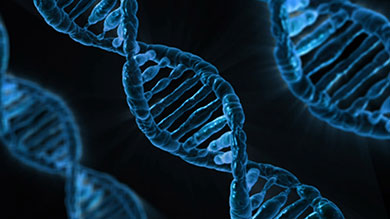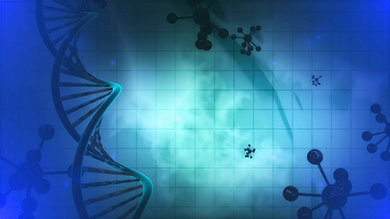Epigenetics
Epigenetics is a relatively new and fairly complex science.
In essence, epigenetics is the study of how factors outside of our genetic code (for example, our behaviors and environments), can alter the expression of our genes, and how this in-turn can impact our health.
 Our human genetic code—the sequence of our DNA—is often described as a 'blueprint"
of our individual genetic makeup. In late 20th century, some believed that by understanding
our genetic code, we could predict with high certainty a person's health risks and
susceptibility to various diseases.
Our human genetic code—the sequence of our DNA—is often described as a 'blueprint"
of our individual genetic makeup. In late 20th century, some believed that by understanding
our genetic code, we could predict with high certainty a person's health risks and
susceptibility to various diseases.
In fact, using genetics to predict health outcomes has proven to be more complex than scientists had initially understood.
For example, while we do have a fixed set of genes, many of our genes can be "switched on" or "switched off" by factors outside of our genetic code. Environmental factors, including lifestyles and behaviors, can alter the ways that our genes are expressed, thus altering risk and susceptibility to many diseases.
 Today, a new scientific field is working to understand the web of relationships between
our genetic code, the modifying proteins that can alter that code, and a range of
environmental and lifestyle factors. This work is called Epigenomics, and anyone interested
in this fascinating science is referred to the National Human Genome Research Institute's Epigenomics web page.
Today, a new scientific field is working to understand the web of relationships between
our genetic code, the modifying proteins that can alter that code, and a range of
environmental and lifestyle factors. This work is called Epigenomics, and anyone interested
in this fascinating science is referred to the National Human Genome Research Institute's Epigenomics web page.
SageMind leverages current epigenetic research on lifestyle and behavioral influences on aging. Moreover, via SageMind's Re:Mind program is continually monitoring epigenetic research and bringing insights related to aging directly to our clients.
